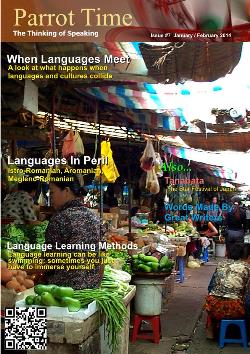Revisited
Words Made By Great Writers

|
Another seventeenth-century writer, John Evelyn, the author of the famous Diary which has taught us so much about the times in which he lived, was a great maker of words. Most of his new words were made from foreign words, and as he was much interested in art and music, many of his words relate to these things. It was Evelyn who introduced the word opera into English, and also outline, altitude, monochrome ("a painting in one shade"), and pastel, besides many other less common words. 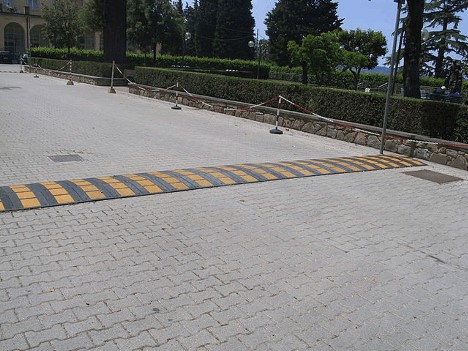 We can thank the Bard for the name of this traffic device: the bump. Robert Boyle, a great seventeenth-century writer on science, gave many new scientific words to the English language. The words pendulum and intensity were first used by him, and it was he who first used fluid as a noun. The poets Dryden and Pope gave us many new words too. Dr. Johnson, the maker of the first great English dictionary, added some words to the language. As everybody knows who has read that famous book, Boswell's Life of Johnson, Dr. Johnson was a man who always said just what he thought, and had no patience with anything like stupidity. The expression fiddlededee, another way of telling a person that he is talking nonsense, was made by him. Irascibility, which means "tendency to be easily made cross or angry," is also one of his words, and so are the words literature and comic. The great statesman and political writer, Edmund Burke, was the inventor of many of our commonest words relating to politics. Colonial, colonization, electioneering, diplomacy, financial, and many other words which are in everyday use now, were made by him. 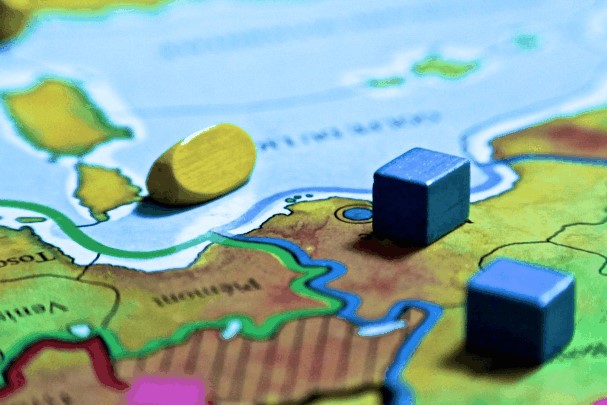 Burke gave us the word diplomacy, which is a big political game. At the beginning of the nineteenth century there was a great revival in English literature, since known as the "Romantic Movement." After the rather stiff manners and writing of the eighteenth century, people began to have an enthusiasm for all sorts of old and adventurous things, and a new love for nature and beauty. Sir Walter Scott was the great novelist of the movement, and also wrote some fine, stirring ballads and poems. In these writings, which dealt chiefly with the adventurous deeds of the Middle Ages, Scott used again many old words which had been forgotten and fallen out of use. He made them everyday words again. The old word chivalrous, which had formerly been used to describe the institutions connected with knighthood, he used in a new way, and the word has kept this meaning ever since. It has now always the meaning of courtesy and gentleness towards the weak, but before Sir Walter Scott used it it had not this meaning at all. Scott also revived words like raid and foray, his novels, of course, being full of descriptions of fighting on the borders of England and Scotland. It was this same writer who introduced the Scottish word gruesome into the language. Shakespeare influenced the English language more than any writer before or since. Later in the century another Scotsman, Thomas Carlyle, made many new words which later writers and speakers have used. They are generally rather forcible and not very dignified words, for Carlyle's writings were critical of almost everything and everybody, and he seemed to love rather ugly words, which made the faults he described seem contemptible or ridiculous. It was he who made the words croakery, dry-as-dust, and grumbly, and he introduced also the Scottish word feckless, which describes a person who is a terribly bad manager, careless and disorderly in his affairs, the sort of person whom Carlyle so much despised. The great writers of the present time seem to be unwilling to make new words. The chief word-makers of to-day are the people who talk a new slang (and of these we shall see something in another chapter), and the scientific writers, who, as they are constantly making new discoveries, have to find words to describe them. Some of the poets of the present day have used new words and phrases, but they are generally strange words, which no one thinks of using for himself. The poet John Masefield used the word waps and the phrase bee-loud, which is very expressive, but which we cannot imagine passing into ordinary speech. Two poets of the Romantic Movement, Southey and Coleridge, used many new and strange words just in this way, but these, again, never passed into the ordinary speech of English people. 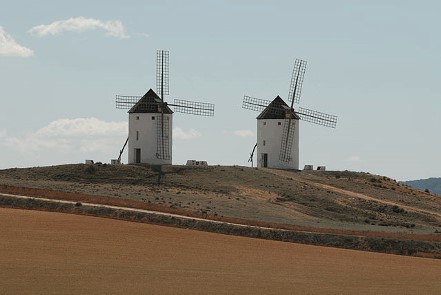 Don Quixote used to charge at windmills. People doing similarly strange activities are now quixotic. One maker of new words in the nineteenth century must not be forgotten. This was Lewis Carroll, the author of "Alice in Wonderland" and "Through the Looking-Glass." He made many new and rather queer words; but they expressed so well the meaning he gave to them that some of them have become quite common. This writer generally made these curious words out of two others. The word galumph (which is now put as an ordinary word in English dictionaries) he made out of gallop and triumph. It means "to go galloping in triumph." Another of Lewis Carroll's words, chortle, is even more used. It also has the idea of "triumphing," and is generally used to mean "chuckling (either inwardly or outwardly) in triumph." It was probably made out of the words chuckle and snort. But great writers have not only added new words and phrases to the language by inventing them; sometimes the name of a book itself has taken on a general meaning. Sir Thomas More in the time of Henry VIII. wrote his famous book, "Utopia," to describe a country in which everything was done as it should be. Utopia (which means "Nowhere," More making the word out of two Greek words, ou, "not," and topos, "place") was the name of the ideal state he described, and ever since such imaginary states where all goes well have been described as "Utopias." Then, again, a scene or place in a great book may be so splendidly described, and interest people so much, that it, too, comes to be used in a general way. People often use the name Vanity Fair to describe a frivolous way of life. But the original Vanity Fair was, of course, one of the places of temptation through which Christian had to pass on his way to the Heavenly City in John Bunyan's famous book, the "Pilgrim's Progress." Another of these places was the Slough of Despond, which is now quite generally used to describe a condition of great discouragement and depression. The adjective Lilliputian, meaning "very small," comes from Lilliput, the land of little people in which Gulliver found himself in Swift's famous book, "Gulliver's Travels." Then many common expressions are taken from characters in well-known books. We often speak of some one's Man Friday, meaning a right-hand man or general helper; but the original Man Friday was, of course, the savage whom Robinson Crusoe found on his desert island, and who acted afterwards as his servant. 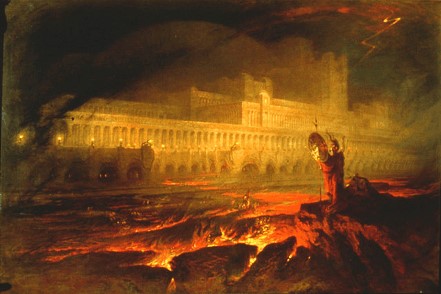 John Martin’s depiction of Milton’s pandemonium, the home of the devils. In describing a person as quixotic we do not necessarily think of the original Don Quixote in the novel of the great Spanish writer, Cervantes. Don Quixote was always doing generous but rather foolish things, and the adjective quixotic now describes this sort of action. A quite different character, the Jew in Shakespeare's play, "The Merchant of Venice," has given us the expression "a Shylock." From Dickens's famous character Mrs. Gamp in "Martin Chuzzlewit," who always carried a bulgy umbrella, we get the word gamp, rather a vulgar name for "umbrella." We speak of "a Sherlock Holmes" when we mean to describe some one who is very quick at finding out things. Sherlock Holmes is the hero of the famous detective stories of Conan Doyle. It is a very great testimony to the power of a writer when the names of persons or places in his books become in this way part of the English language. PT |
| Revisited - Words Made By Great Writers | ||||||||
| Writer: | Elizabeth O'Neill | |||||||
| Images: | ||||||||
| ||||||||
| Sources: | ||||||||
| ||||||||
All images are Copyright - CC BY-SA (Creative Commons Share Alike) by their respective owners, except for Petey, which is Public Domain (PD) or unless otherwise noted.
comments powered by Disqus









